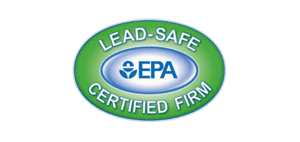As a homeowner, the safety of your family and property is of utmost importance. One way to ensure their safety is by preventing fire damage. Taking proactive measures to prevent fires can save you from costly damage, injuries, and even loss of life. Here are some essential fire damage prevention tips that you can implement to safeguard your home.
Key Takeaways:
- Installing smoke alarms in every room of your home is crucial for fire safety.
- Regularly test and maintain smoke alarms to ensure they are functioning correctly.
- Develop an escape plan and practice regularly with all household members.
- Keep flammable materials away from heat sources to reduce the risk of fire igniting and spreading.
- Practice safe cooking habits to prevent kitchen fires.
Install Smoke Alarms in Every Room
When it comes to fire safety equipment, smoke alarms are an absolute must. Make sure to install smoke alarms in every room of your home to ensure maximum protection. Smoke alarms can detect smoke quickly, allowing for early detection and warning to evacuate the premises before it is too late. With the help of smoke alarms, you can prevent extensive fire damage and ensure the safety of your loved ones.
It is essential to install smoke alarms in every room, including bedrooms, living rooms, kitchens, and hallways. Placing smoke alarms in these areas increases the chances of early detection so that you can take action to prevent further damage.
| Tip | Details |
|---|---|
| Install interconnected smoke alarms | Interconnected smoke alarms communicate with each other and sound off together when one alarm detects smoke. This is especially important for larger homes or multi-level homes. |
| Use both ionization and photoelectric smoke alarms | Ionization smoke alarms detect flames faster, while photoelectric smoke alarms detect smoldering fires. Using both types of smoke alarms increases the chances of early detection. |
| Replace batteries regularly | Be sure to replace batteries at least once a year or as needed. Most smoke alarms will beep when the batteries are low. |
It is important to note that smoke alarms have a lifespan of 10 years, and after that, they must be replaced. With regular maintenance and testing, smoke alarms can provide long-term protection for your home and loved ones.
Regularly Test and Maintain Smoke Alarms
It is not enough to simply install smoke alarms in your home. Proper maintenance is essential to ensure they are in good working condition and can alert you in case of a fire emergency.
| Smoke Alarm Maintenance Checklist |
|---|
| Test smoke alarms once a month by pressing the test button |
| Replace batteries at least once a year or when the low-battery warning chirps |
| Replace smoke alarms every ten years |
Smoke alarms are your first line of defense against fire. By following this maintenance checklist, you can ensure that your smoke alarms are functioning correctly and reduce the risk of fire damage in your home.
Additionally, consider scheduling annual professional inspections to guarantee their effectiveness. A professional inspection can identify any faulty wiring or other issues that may cause your smoke alarms to malfunction.
Don’t take the risk of having non-functional smoke alarms in your home. Make sure to regularly test and maintain them to ensure your family’s safety.
Create an Escape Plan and Practice Regularly
Developing an escape plan is a significant part of fire safety. To prepare for home evacuation in case of a fire, you should plan multiple exit routes from each room, designate a meeting point outside, and practice your escape plan regularly with all household members.
When creating a fire escape plan, it should include:
- A floor plan with two ways out of every room
- A designated meeting place outside, such as a tree or a neighbor’s house
- A plan for helping young children, elderly, or family members with disabilities
- Important emergency phone numbers
Remember to practice your evacuation plan regularly so that everyone in your household is familiar with it. It may also be beneficial to conduct drills at different times of the day or night to simulate actual scenarios and to ensure everyone knows what to do in an emergency.
Keep Flammable Materials Away from Heat Sources
One of the easiest ways to prevent fire hazards in your home is to keep flammable materials away from heat sources. Flammable materials such as curtains, rugs, and cleaning agents can ignite quickly, and heat sources like stoves, heaters, and electrical appliances can easily trigger a fire. Therefore, it’s essential to store these materials a safe distance away from any potential heat sources.
Here’s a table that shows some common flammable materials to keep away from heat sources:
| Flammable Materials | Heat Sources |
|---|---|
| Gasoline | Stove, Heater, Any Electrical Device |
| Paint/Solvents | Stove, Heater, Any Electrical Device |
| Cleaning agents | Stove, Heater, Any Electrical Device |
By keeping a safe distance between flammable materials and heat sources, you can significantly reduce the risk of a fire igniting and spreading in your home. Taking this simple precaution can help ensure the safety of your home and loved ones.
Practice Safe Cooking Habits
Cooking is a necessary daily activity, but it can also be a potential fire hazard if not practiced safely. To prevent kitchen fires, it is essential to follow safe cooking habits. Here are some tips to help you practice safe cooking in your home:
- Never leave the stove unattended while cooking, especially when using high heat settings.
- Keep flammable items such as dish towels, oven mitts, and paper towels away from the stove burners.
- Use a timer to remind yourself of cooking times and avoid leaving food on the stove for too long.
- Never cook while wearing loose clothing that can catch fire easily.
- Teach children to stay away from the stove when cooking and keep a safe distance.
By practicing safe cooking habits, you can significantly reduce the risk of kitchen fires and ensure the safety of your home and loved ones. Remember to always be vigilant and cautious when cooking to prevent potential fire hazards.
Properly Store and Handle Flammable Materials
When it comes to preventing fires in your home, it’s important to handle and store flammable materials with care. Flammable materials can include gasoline, lighter fluid, and paint, among others.
First and foremost, it’s critical to store flammable materials in well-ventilated areas away from sources of heat. This is because flammable materials can easily ignite if they come into contact with heat sources, such as stoves, water heaters, and electrical appliances.
Additionally, it’s essential to use approved containers that are tightly sealed to store and transport flammable materials safely. These containers should be designed specifically for the type of material you’re storing and should be made of materials that can withstand the substance. For example, gasoline should be stored in a container made of metal or plastic, and the container should be clearly labeled as containing flammable material.
When handling flammable materials, it’s also important to follow all safety instructions provided. This may include wearing protective gear such as gloves and eyewear, as well as avoiding smoking or other open flames in the immediate vicinity of the material.
By taking these fire safety precautions, you can greatly reduce the risk of accidental fires in your home. Remember to always handle and store flammable materials with care, and never take any unnecessary risks when it comes to fire safety.
Conduct Electrical Safety Checks
Regularly checking the electrical safety of your home is essential in preventing fires. Damaged cords, overloaded outlets, and faulty wiring can all be sources of electrical fires. By regularly inspecting and maintaining your electrical system, you can significantly reduce the risk of fire damage.
Here are some electrical safety tips to remember:
- Do not overload outlets or use extension cords as permanent solutions.
- Replace damaged cords and frayed wires immediately.
- Never touch electrical devices with wet hands or while standing on a wet floor.
- Schedule regular professional inspections to ensure all wiring and connections are up-to-date and properly installed.
Make sure to follow these electrical safety precautions and take proactive steps to prevent electrical fires in your home.
Conclusion
In conclusion, it is crucial to prioritize home safety by implementing these essential fire damage prevention tips. By installing smoke alarms in every room, regularly testing and maintaining them, creating an escape plan, practicing safe cooking habits, and being diligent with flammable materials and electrical safety, you can significantly reduce the risk of fire damage. Remember to plan multiple exit routes from each room, designate a meeting point outside, and practice your escape plan regularly with all household members.
Proper storage and handling of flammable materials significantly reduce the risk of accidental fires. Be sure to store them in well-ventilated areas away from heat sources, using approved, tightly sealed containers and following all safety instructions provided. Regularly check your electrical system for any signs of wear, loose connections, or outdated wiring and have a professional electrician inspect your home for potential fire hazards. Proper electrical safety measures play a vital role in fire prevention.
By following these simple steps, you can help safeguard your home and loved ones. Remember, home safety is everyone’s responsibility and taking proactive measures to prevent fire hazards in your living environment will provide peace of mind and protection for years to come.
FAQ
What are some essential fire damage prevention tips?
Some essential fire damage prevention tips include installing smoke alarms in every room, regularly testing and maintaining smoke alarms, creating an escape plan and practicing it regularly, keeping flammable materials away from heat sources, practicing safe cooking habits, properly storing and handling flammable materials, conducting electrical safety checks, and being diligent with home safety measures.
Why is it important to install smoke alarms in every room?
Installing smoke alarms in every room is crucial because they can quickly detect the presence of smoke and alert you to potential fire hazards. This provides valuable time to evacuate and prevent further damage.
How often should I test and maintain smoke alarms?
It is important to regularly test smoke alarms to ensure they are functioning correctly. Additionally, batteries should be replaced as needed. Consider scheduling annual professional inspections to guarantee their effectiveness.
Why do I need to create an escape plan and practice it regularly?
Developing an escape plan is crucial for fire safety. Planning multiple exit routes from each room, designating a meeting point outside, and practicing the escape plan regularly with all household members increases the chances of safely evacuating in the event of a fire.
How can I prevent fires caused by flammable materials?
To prevent fires caused by flammable materials, ensure that items such as curtains, rugs, and cleaning agents are kept away from heat sources like stoves, heaters, and electrical appliances. This simple precaution can significantly reduce the risk of a fire igniting and spreading.
What are some safe cooking habits I should practice?
Safe cooking habits include never leaving the stove unattended, keeping flammable items away from burners, and using a timer to remind yourself of cooking times. These small measures can prevent disastrous fires in the kitchen.
How should I store and handle flammable materials?
When storing or handling flammable materials such as gasoline, lighter fluid, or paint, ensure they are stored in well-ventilated areas away from heat sources. Use approved, tightly sealed containers and follow all safety instructions provided. Proper storage and handling significantly reduce the risk of accidental fires.
Why is it important to conduct electrical safety checks?
Regularly checking your electrical system for any signs of wear, loose connections, or outdated wiring is important to prevent fires. Replace damaged cords, ensure outlets are not overloaded, and consider having a professional electrician inspect your home for potential fire hazards. Proper electrical safety measures play a vital role in fire prevention.
How can implementing these fire damage prevention tips safeguard my home and loved ones?
Implementing these essential fire damage prevention tips, such as installing and maintaining smoke alarms, creating an escape plan, practicing safe cooking habits, and being diligent with flammable materials and electrical safety, can significantly reduce the risk of fire damage. Prioritizing home safety and taking proactive measures will help safeguard your home and loved ones.




















